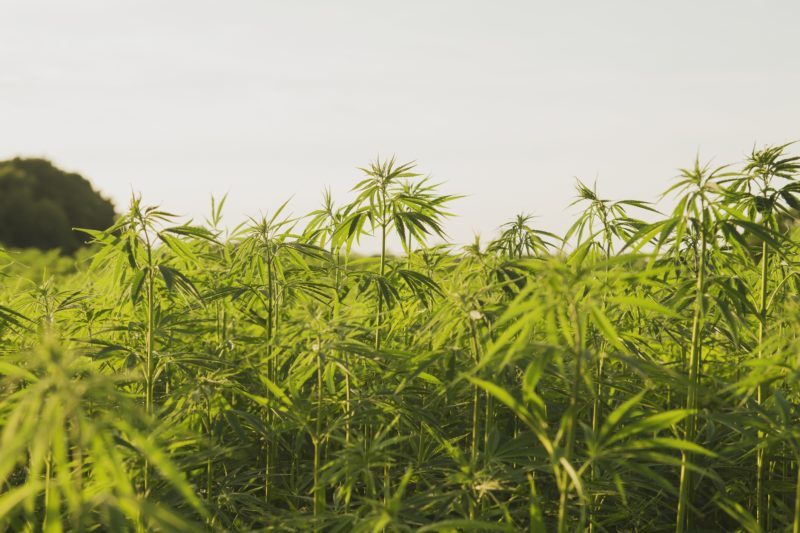The five things on FDA's list include:
- Delta-8 THC products have not been evaluated or approved by FDA for safe use in any context, and can have dangerous marketing: Variability in product formulations and product labeling, other cannabinoid and terpene content, and differing delta-8 THC concentrations can all cause different and unknown effects in a consumer. Some products may simply be labeled “hemp products,” which may mislead consumers who are looking for non-psychoactive products.
- FDA received adverse event reports between December 2020 and July 2021 describing 22 patients who consumed delta-8 THC. Of these, 19 experienced adverse events after ingesting food containing delta-8. 14 went to a hospital or emergency room for treatment after consumption of delta-8. Adverse events included vomiting, hallucinations, trouble standing, and loss of consciousness. National poison control centers received 661 exposure cases of delta-8 between January 2018 and July 31, 2021, 660 of which occurred in 2021. Of the 661 cases, 41% involved unintentional exposure to delta-8, and 18% required hospitalizations, including children who required ICU admission.
- Delta-8 has psychoactive and intoxicating effects. Products containing delta-8 may have much higher levels of the substance than are naturally occurring in raw extracts of hemp, so historical data on use and consumption of cannabis and hemp can’t be used to predict a reaction to or the safety of a delta-8 product.
- Production of delta-8 products may require potentially harmful chemicals, in order to create a product with the concentration claimed on the label. Besides the safety of the chemicals used to actually concentrate the product, the chemicals may have byproducts that end up in the final product.
- Delta-8 products may be packaged in a way that appeal to children—as gummies, chocolates, cookies, and more. Looking back at the statistics from national poison control centers, of the 41% of cases involving unintentional exposure, 77% affected pediatric patients less than 18 years of age. 39% of all exposure cases affected pediatric patients. These products should be kept out of reach of children and pets.
Related: 2021 Phytocannabinoids Market Update: Troubleshooting & Trendspotting Mental Health: The Next Crisis CV Sciences, Alkemist Partner on Cannabis Testing Program
As WholeFoods has previously reported, the industry is divided on delta-8. The U.S. Hemp Authority, for instance, will not certify hemp products marketed for an intoxicating effect. In March 2021, Dr. Marielle Weintraub, President of the U.S. Hemp Authority,said:“Recent press reports about the proliferation of potentially unsafe, intoxicating products calling themselves hemp have concerned consumers, retailers, law enforcement and policymakers. We felt it was necessary to take a strong stand against these products so that people will know that the U.S. Hemp Authority seal designates products that are truly hemp and that meet our rigorous standards.”The U.S. Hemp Roundtable, too, made its stance on delta-8 clear in a statement also made in March:“Unlike marijuana, hemp is, by definition, not intoxicating. Rather hemp products like CBD are popularly used by consumers to benefit their general health and wellness, not to get them high. Adult-use cannabis products, which feature concentrated THC and are intended for intoxication, should not be marketed as dietary supplements, and should be subject to a distinct regulatory pathway. We look forward to working with Congress and federal agencies to develop responsible laws and regulations to provide separate pathways and proper guardrails to distinguish these products.”
The American Herbal Products Association (AHPA),adopted a guidance policy in Junethat points out that “hemp” is defined by federal law as “the plant Cannabis sativa L. and any part of that plant, including the seeds thereof and all derivatives, extracts, cannabinoids, isomers, acids, salts, and salts of isomers, whether growing or not, with a delta-9 tetrahydrocannabinol concentration of not more than 0.3 percent (0.3%) on a dry weight basis,” and notes that no other cannabinoid is subject to the same quantitative limit that delta-9 is. AHPA therefore took a stance not against naturally occurring delta-8, but against “concentrations in excess of the naturally occurring level in hemp” and synthetic or artificial cannabinoids, including synthetic delta-8.
The Hemp Industries Association (HIA)took the positionthat delta-8 THC, along with all other hemp-derived cannabinoids, were federally legalized by the 2018 Farm Bill. “Businesses, farmers, and consumers all deserve regulations that support the exploration of the hemp plant’s full potential. This isn’t just about one minor cannabinoid —the list is over a hundred already and growing,” said Jody McGinness, HIA’s Executive Director, in the press release. “Fortunately, the industry has all the expertise legislators could need, and those manufacturing leaders and scientists are engaged and ready to help create productive policy solutions.” The HIA citeda legal opiniondrafted by attorneys Rod Kight and Philip Snow of Kight Law.









